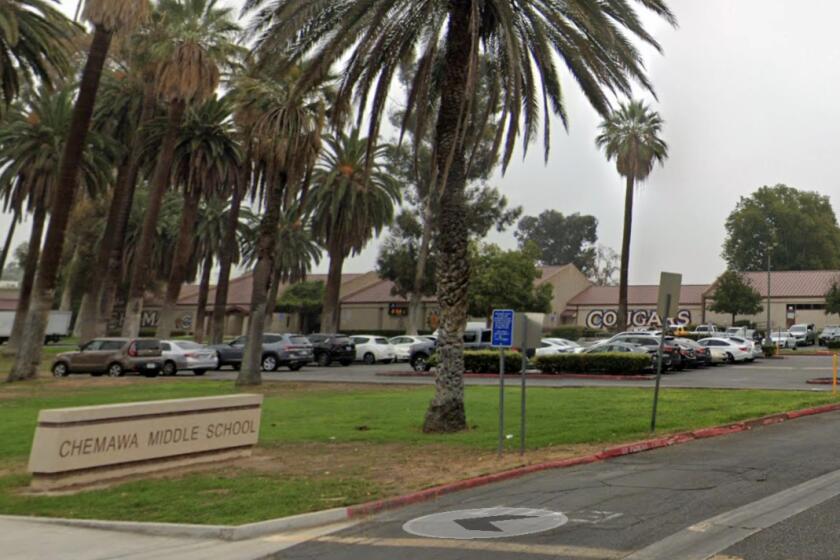Great School Debate : edited by Beatrice and Ronald Gross (Simon & Schuster: $17.95, hardcover; $9.95, paperback; 480 pp.)
The recent national debate on public education has centered on one question: Is it a good idea to require more academic study of all students?
The authors of most of the recent national reports on schooling, along with the many state legislators who have enacted their recommendations into law, say “yes.”
Some simply believe in general learning. Others cite Japan as a reason. The most quoted report, “A Nation at Risk,” by President Reagan’s National Commission on Excellence in Education, begins by observing: “Our once unchallenged pre-eminence in commerce, industry, science, and technological innovation is being overtaken by competitors throughout the world.”
After summarizing the “rising tide of mediocrity” in American education, the authors of the report urge “schools, colleges and universities (to) adopt more rigorous and measurable standards, and higher expectations, for academic performance and student conduct.”
The commission said that “the new basics” for all high school students should include four years of English, three years each of math, science and social studies, half a year of computer study and two years of a foreign language.
These requirements, with the exception of the computer course, don’t sound new. They are, in fact, the standard curriculum for most college-bound students.
In another of the recent reports, Mortimer Adler, the University of Chicago philosopher, went a step further and argued, as he has for 50 years, that all students should take the same academic curriculum from grades 1 through 12. He would insist on general liberal learning, with no vocational courses and no separate “tracks” for academic and vocational students.
“The best education for the best is the best education for all,” says Adler.
But, many school officials and most educational liberals, those who were in ascendancy in the 1960s and early 1970s, disagree with these basic assumptions. They say schooling should “meet the needs” of students, and students differ. Some find academic study, whether it is Shakespeare or chemistry, to be boring, useless and beyond their grasp.
Listen to Floretta McKenzie, the superintendent of the Washington, D.C., school system. “This belief, that what is best for the best is best for all, is a dangerously elitist tenet which may destroy the potential of countless young minds.” Adler and his cohorts “are out of touch with both education’s proven knowledge base and the realities of contemporary society.” Many school officials grumble that requiring more academic courses in high school will merely worsen the “dropout” problem. Some even go so far as to label it the “push-out” problem.
If you are truly interested in this “Great School Debate,” Beatrice and Ronald Gross have put together a book for you. They have reprinted all or parts of most of the recent national reports on education, and they have added commentaries on all sides of the issue.
They begin with a cogent observation--that the educational critics of the 1960s were individuals, such as John Holt, Jonathan Kozol or Herbert Kohl, while the critics of the ‘80s have been official committees.
“Today’s commissions accuse the schools of failing our society. The critics of the ‘60s accused them of failing the individual,” they write.
The editors are more in tune with the ‘60s philosophers, who are said to “espouse an intelligent, inspiring vision” or offer a “voice of sanity.” Meanwhile, the current reformers are said to “publish widely from a conservative point of view.”
And, lest the topic become too abstract, the book includes several “day-in-the-life-of” accounts by a teacher, an assistant principal and a student. For them, life at school appears to be a struggle for survival--an effective antidote to an obsession with educational philosophy.
More to Read
Sign up for Essential California
The most important California stories and recommendations in your inbox every morning.
You may occasionally receive promotional content from the Los Angeles Times.











